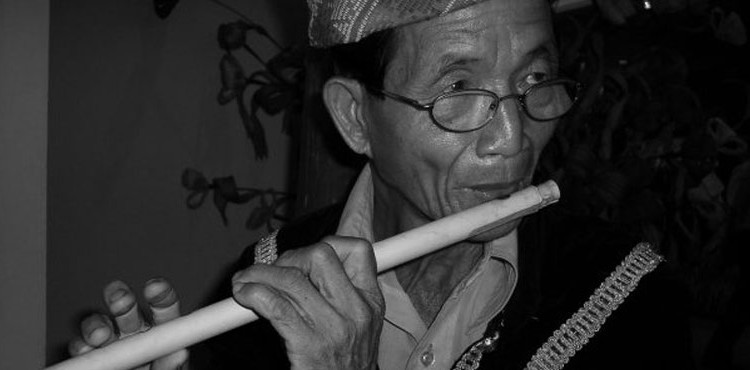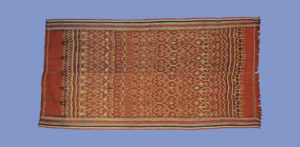Written by Reita Rahim of Gerai OA
The Dusun are part of the Anak Negeri, the indigenous peoples of Sabah. The unified term Kadazandusun is now preferred; the thirty odd dialect groups within it make up less than 30% of Sabah’s population of 2.3 million or approximately 538,000 individuals (2002).
The Dusun have numerous dialect groups, most notable are the Kadazan who reside in valleys surrounding Penampang and Papar. Other dialect groups live in hilly districts including Kiulu, Tambunan and Ranau. Many are agrarians and rice farming is still carried out by many families.
Despite development of their traditional lands into acacia or oil palm plantations, or mixed development, the Dusun have managed to retain much of their culture, traditions and intangible heritage including their distinct languages, myth and stories, songs, dances and handicrafts.
Dusun Handicrafts Today
The Dusun still produce many utilitarian and agrarian crafts. Basketry is practiced by both men and women, though large back baskets are now more commonly made of rain-durable recycled plastic box straps.
Common crafts are those with high commercial value especially rattan based crafts, which are made in large quantities in some villages. Minor crafts include ironsmithing while textile production in virtually extinct.
Other crafts, notably ritual crafts and traditional musical instruments are increasingly rare today. These include crafts made from lama’ reeds (donnax sp.), and even traditional musical instruments like the iconic sompoton (bamboo mouth organ) is also facing rapid decline as most of the practising artisans are elderly and with failing eyesight.
Tamparuli, Tuaran
This small market town is less than an hour’s drive from the state capital of Kota Kinabalu; public transport is available. The main indigenous ethnic group residing within this district area are the Dusun.
Tamparuli is also a gateway to whitewater rafting adventures in rivers further upland in neighbouring Kiulu. Another attraction is a weekly tamu (traditional market) held here every Wednesday morning. Located within the tamu grounds within sight of the Tamparuli suspension footbridge (made famous in a local 1970s song), this market is a good place to see and source for local produce and various crafts.
Contemporary Crafts
The following are some Dusun crafts marketed by Gerai OA:
sepak raga rattan balls
Although production was only introduced in Kg. Gansurai in the 1980’s, these balls are now woven by both men and women. Made from tuai split rattan, full scale balls are played in a three-a-side sepak takraw game.
binsulong rattan IQ puzzles
Made in Kg. Rugading Bolotikul near Kiulu, these differ from rattan versions made with interlooped rattan, fitted with nylon string. It’s this string which must be removed without cutting it or dismantling the rattan snare.
bakul bulukan ‘pangolin’ baskets
Also made in Kg. Rugading Bolotikul near Kiulu, these differ from rattan version made popular in the 1960s as it is now made from lentungagi – thin stems of a creeping fern, wound around a sturdy rattan frame.
sompoton bamboo mouth-organ
Made in Kg. Tikolod in Tambunan, this musical instrument is made from a raft of small bamboo culms set within a gourd mouthpiece. The sound originates from tiny palm-wood lamelas inserted in each bamboo culm.
bayong lidded basket
Made in Kg. Kionsob in Topokon, these rare baskets are made from the smooth outer ‘skin’ of lama’ reeds (donnax sp.). These lidded baskets were used to store husked rice or rice seeds for next season’s planting.





